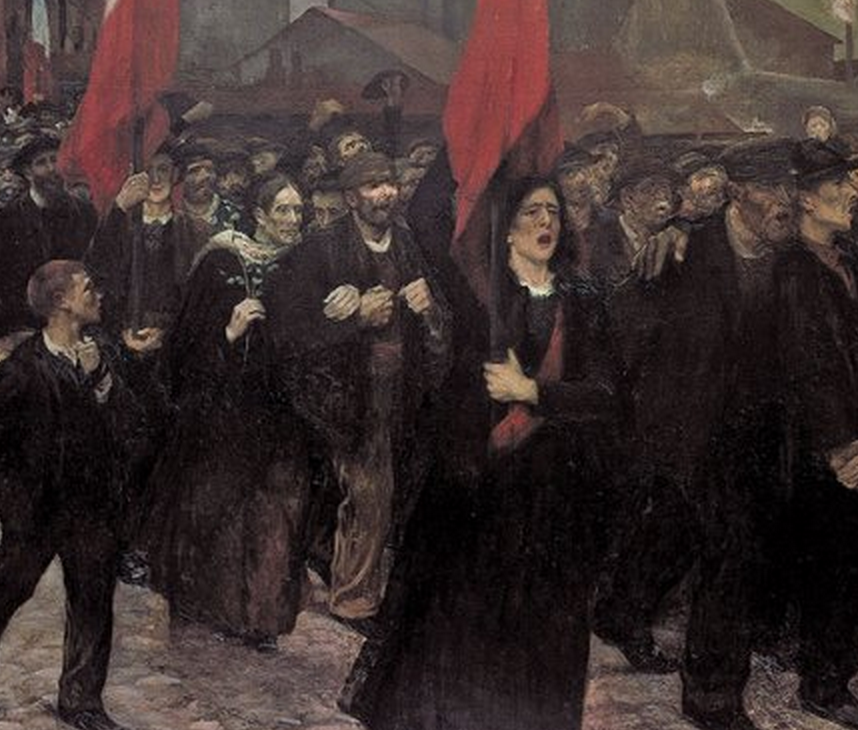Germinal Book Review
January 13, 2015
One of the greatest French writers to have ever lived, Emile Zola helped to popularize the form of literature known as naturalism. Naturalism, in its literary form, is the objective, realistic depiction of people in a set environment. I’m not trying to bore you out of your wits just two sentences into this review; I’m describing naturalism for a reason. Germinal, originally published in 1885, is considered to be one of Emile Zola’s greatest works, and one of the most significant naturalistic novels. Why is this? Because Germinal provides a vivid, and simultaneously sordid portrayal of northern French coalminers in the 1860s.
The novel’s plot begins with a man named Etienne, who, in desperate search of work, stumbles upon the coal mining town of Montsou. Despite the gruelling, inhumane conditions he and the other miners face, Etienne soon acquiesces to his newfound labor. However, the central point of the plotline involves Etienne inspiring his fellow miners to strike and resist the harsh conditions forced upon them.
Now to mention some of Germinal’s qualities, without revealing too much of the story. One of the fascinating, and also gruesome, parts of Germinal is the portrayal of the mine. Zola manages to bring the dark, damp hell of a mid 19th-century coal mine to life, which he managed to successfully do after months of first-hand research prior to writing Germinal. Similarly, no details regarding what goes on within the mine are left out. This unromantic, non-surreal, brutally realistic approach touches all aspects of the novel. The poverty, living conditions, and everyday lives of the miners is unbelievably dismal, though at the same time impeccably accurate.
One of the themes of this novel, which can also be found (to an extent) in some of George Orwell’s works (e.g. Animal Farm [1945]), is socialism. Specifically, the idealistic principles of socialism and the ugliness which can come from a people deprived of liberties and hungry to obtain those liberties. What I mean is, Etienne manages to unite the miners under the ideas of socialism. While socialism sounds like heaven for the starving, poor, ill miners, the viciousness of the desire for equality which arises from those socialistic views takes a drastic effect upon these miners. This can be even simplified by stating that Etienne’s attempt at socialism gradually becomes disfigured into blatant anarchism. Apart from the specific ideologies which Zola includes in his book, he still draws a clear line between the different social classes in the novel (i.e. the miners and their wealthy employers). Thus, Germinal also illustrates the cruelty enforced by the business upon the laborer.
Perhaps the only outstanding flaw, which may discourage the more impatient readers out there, is how Germinal’s plot unfolds. The build-up to the story’s climax, which is when the workers do actually strike, is slow-moving. Similarly, the portion of the book following the climax is also slow-moving. In essence, there is little action throughout most of the novel. However, it is worth noting that the slowness of the novel is outweighed by the specific, excellent detail and development Zola exhibits throughout Germinal.
So, if you’re the kind of reader who enjoys a nice, foreign, descriptive, (kind of) slow 19th-century novel, I highly recommend Emile Zola’s Germinal. The unique style of Zola’s, and the unnaturally natural portrayal of the lives of French coal miners combine to make an amazing novel.
